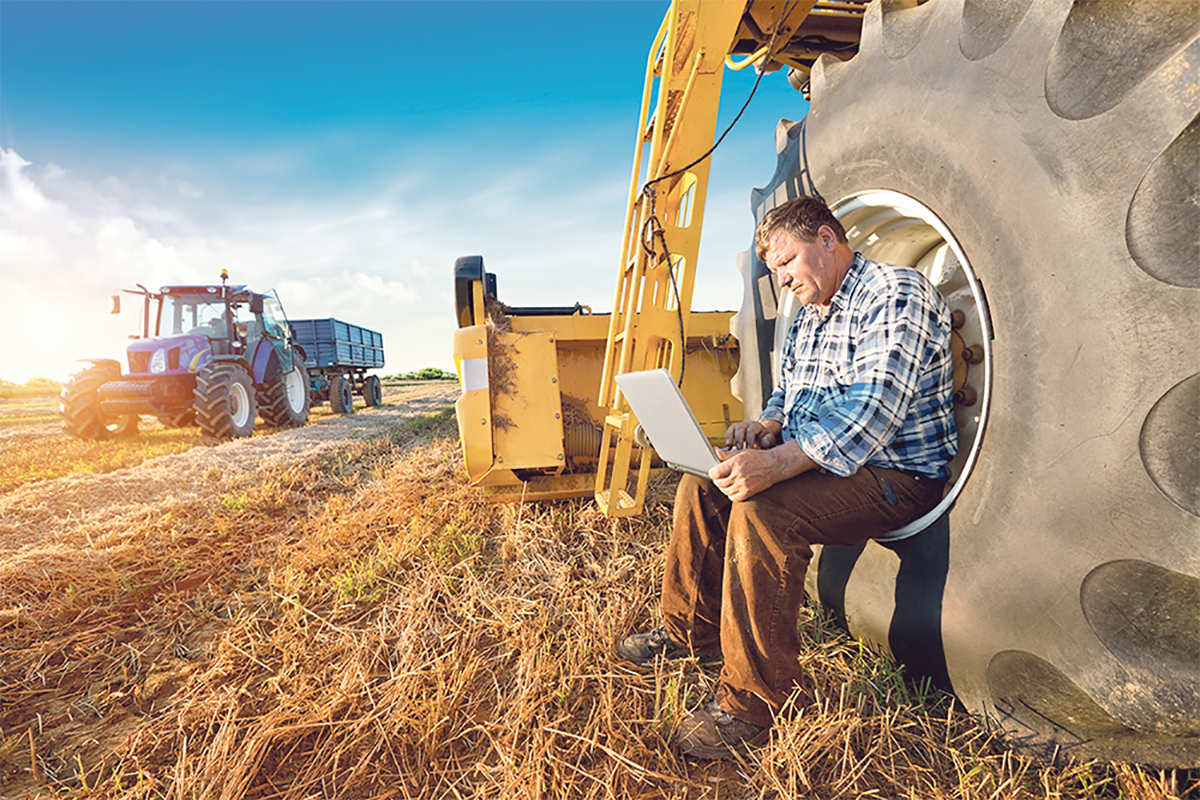In today’s tech-driven world, farming apps are an increasingly popular way to manage operations.
Ranging from precision agriculture apps such as Climate FieldView to crop monitoring apps such as Crop Intelligence, these tools can help with tracking and efficiency.
Before you hit “accept,” take a moment to understand the fine print and what it means for your personal information and farm data.
Read Also

Producer profits remain under significant pressure
Manitoba farmers are facing down a double hit of high input costs, like fertilizer, and low grain prices as they harvest their next crop.
“Data” refers to any information you enter into or generate through apps, including images and information that relate to financial performance, expense tracking, soil type and composition, crop yields and growth metrics, field boundaries, livestock tracking, machinery and equipment performance and year-to-year comparisons.
Data is valuable for many reasons: it can be used to predict trends, offer insights that improve performance and provide benchmarks for metrics such as agricultural productivity. Even when you provide the data, the rights to use, access or share your data are governed by the app’s terms and conditions.
Before you use an app, look for the following information to understand how your data will be handled:
What data is collected, such as location, contacts, payment information?
Who owns the raw data?
How can the data be used (e.g., for analytics or resale)?
Can the data be shared with third parties without your consent, such as for advertising or other purposes?
How is the data is stored, and are there any security measures in place to protect the data?
What are your rights to delete or retrieve data upon ending service?
You should be cautious of apps that:
Use overly broad or vague clauses that use ambiguous language such as “and other purposes” without clarifying what those purposes are.
Reserve the right to share your data with multiple third parties or “partners” without specifying who they are and why.
Reserve the right to use, modify, publish or redistribute any data you upload for purposes unrelated to the services you sign up for.
Transfer ownership of anything you create or upload on their platform to the company.
Allow for the installation of additional software or updates without your approval.
Require you to provide permission for the app to access your microphone, camera or files when it is not necessary for the app’s function.
Fail to specify an option for you to delete your data or account, or fail to specify how long your data is stored or for what purpose.
Allow the app to change its terms without notice or consent.
Many apps require you to provide your personal information, such as your name and contact information, to create an account. Some apps might allow you to log in through an existing account, such as Facebook or Google. This allows the app to access and retain your personal information. If your personal information is leaked or improperly stored, you could be at risk for fraud, such as identity theft.
Because of this risk, you should review the app developer’s privacy policy. This might be separate from the terms and conditions, but it is important to make sure the developer complies with Canadian privacy laws. These laws require apps and services to protect your personal information and give you the option to access, correct or delete that information.
If you don’t feel confident that you understand and accept the terms and conditions and privacy policy, think twice before using that app or service. Instead, look for alternatives with fairer terms, or reach out to their customer support to see if they can answer your questions or concerns.
Ultimately, you play a very important role in keeping your information secure.
Kristél Kriel is a partner with MLT Aikins LLP and Geena Holding is a student-at-law with MLT Aikins LLP. If you have a topic or question you would like us to address in future issues, please email kkriel@mltaikins.com. This article is of a general nature only and is not exhaustive of all possible legal rights or remedies. In addition, laws may change over time and should be interpreted only in the context of particular circumstances such that these materials are not intended to be relied upon or taken as legal advice or opinion. Readers should consult a legal professional for specific advice in any particular situation.

















